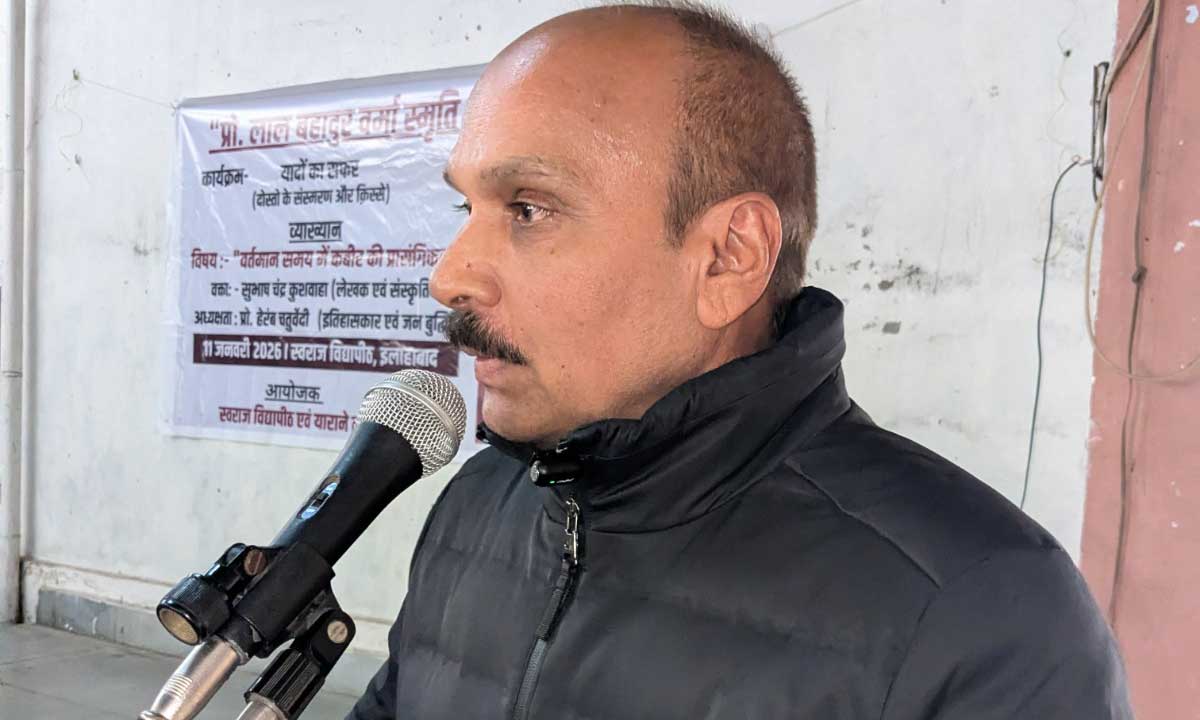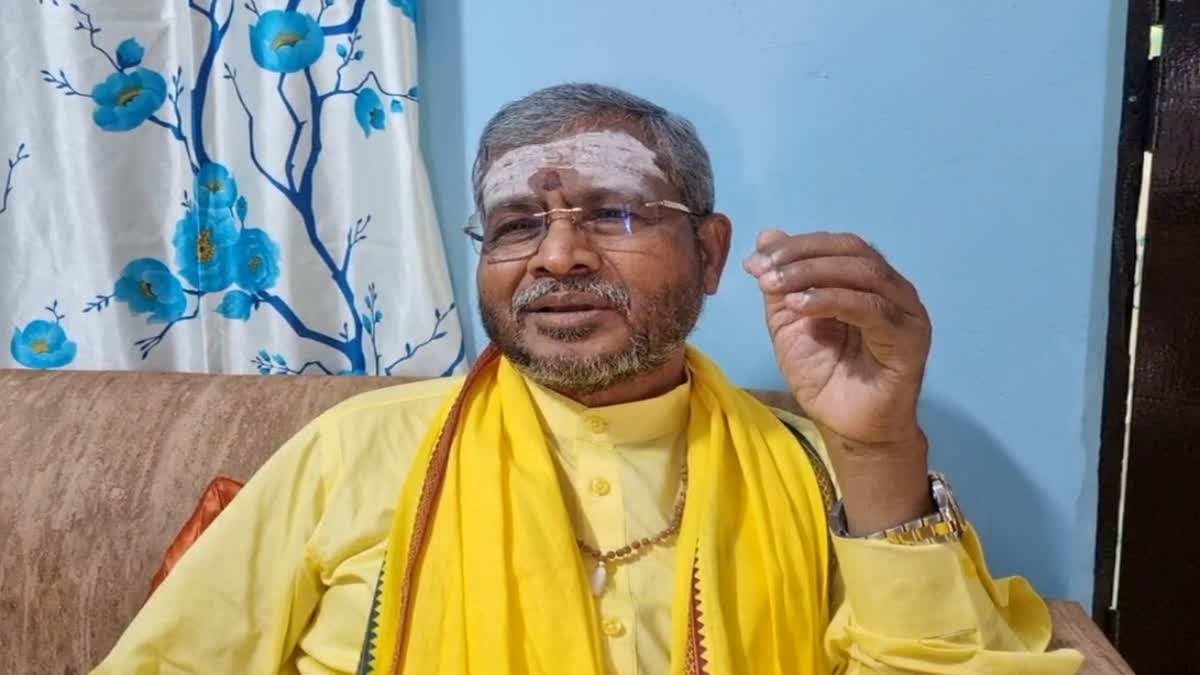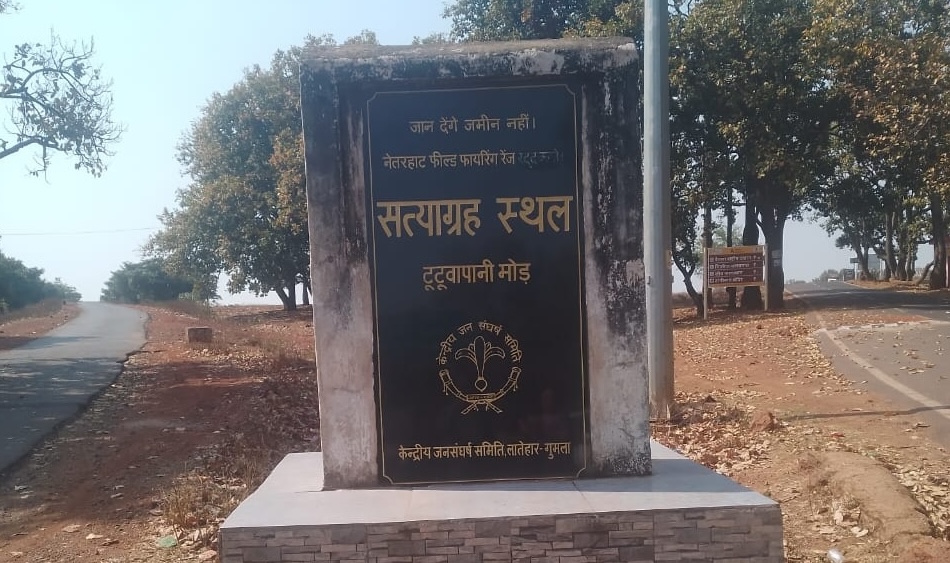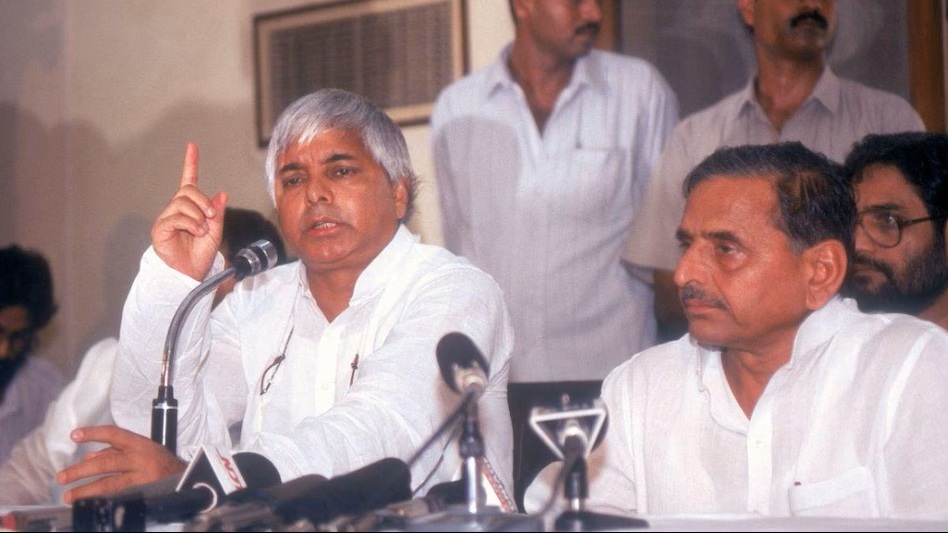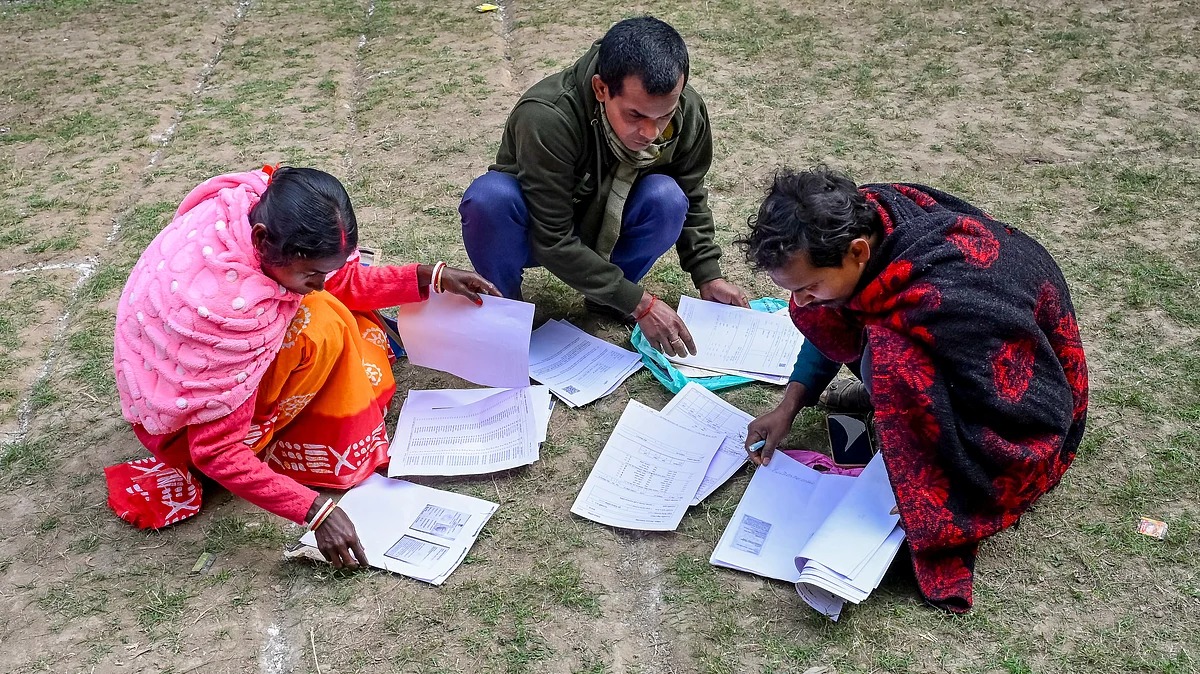‘If Sardar Patel had been prime minister instead of Jawaharlal Nehru, the course of the country may have been different.’ This ‘if’ has been frequently posed by various political leaders, particularly those associated with the Rashtriya Swayamsevak Sangh and its affiliate Bharatiya Janata Party (BJP), who hold grievances against Nehru and the Congress. Discussions on this topic often surface in newspapers and magazines. However, a crucial question that has rarely been asked is: What if Dr B.R. Ambedkar had been prime minister instead of Nehru? Unlike the Patel-Nehru debate, this question has neither been raised by any political party nor become a significant topic of discourse in mainstream media.
Ambedkar has been widely acknowledged by various political factions either as the architect of the Indian Constitution or as a leader of the Dalits. But why has his stature as a national leader, thinker and visionary been limited to these roles? Why was there no effort to elevate his political standing, and why is his broader contribution to the nation often overlooked?
Looking back at history, what were Dr Ambedkar’s thoughts on the country’s condition before and immediately after Independence? Even today, politicians frequently invoke his name and praise his contribution but stop short of considering what India’s trajectory may have been had Ambedkar been prime minister.
To truly understand Ambedkar’s vision, we must examine his writings and speeches from the time India was taking shape as an independent nation. On 25 November 1949, Ambedkar said during a speech in the Constituent Assembly: “On the 26th of January 1950, we are going to enter into a life of contradictions. In politics we will have equality and in social and economic life we will have inequality. In politics we will be recognizing the principle of one man one vote and one vote one value. In our social and economic life, we shall, by reason of our social and economic structure, continue to deny the principle of one man one value. How long shall we continue to live this life of contradictions? How long shall we continue to deny equality in our social and economic life? If we continue to deny it for long, we will do so only by putting our political democracy in peril. We must remove this contradiction at the earliest possible moment or else those who suffer from inequality will blow up the structure of political democracy which this Assembly has so laboriously built up.”
Dr Ambedkar was keenly aware that the Constitution alone could not bring about social and economic equality; it required an active and sustained movement to realize these goals. Even in his time, he foresaw the persistence of inequality – an issue that political leaders today often ignore or exploit for electoral gains. On 16 December 1946, while debating Nehru’s resolution to declare India an “independent sovereign republic”, Ambedkar pointed out a crucial flaw. He remarked: “I find that this part of the resolution, although it enunciates certain rights, does not speak of remedies. All of us are aware of the fact that rights are nothing unless remedies are provided, whereby people can seek to obtain redress when rights are invaded. I find a complete absence of remedies. Even the usual formula that no man’s life, liberty and property shall be taken without the due process of law finds no place in the resolution.”
Ambedkar’s vision extended far beyond drafting the Constitution; he sought a nation where social and economic justice would be as fundamental as political rights. His insights remain profoundly relevant today, yet the question of what India could have been under his leadership remains largely unexamined.
The system that should ensure equality has never truly existed. This issue deeply troubled Dr B.R. Ambedkar, so much so that on 13 December 1946, when Jawaharlal Nehru presented a proposal on the objectives of the Constitution in the Constituent Assembly, Ambedkar immediately opposed it. He said, “I must confess that coming as the resolution does from Pandit Jawaharlal Nehru who is reputed to be a socialist, this resolution, although non-controversial, is to my mind very disappointing. I should have expected him to go much further than he has done in that part of the resolution. … I should have expected some provision whereby it would have been possible for the state to make economic, social and political justice a reality and I should have from that point of view expected the resolution to state in most explicit terms that in order that there may be social and economic justice in the country, that their would be nationalization of industry and nationalization of land. I do not understand how it could be possible for any future government which believes in doing justice socially, economically and politically unless its economy is a socialistic economy.”
We have become used to leaders of the RSS speaking ill of the Constitution and some even threatening to replace it but Ambedkar had warned of the more insidious methods of undermining the Constitution that are also being used today. On 4 November 1948, during a Constituent Assembly debate, Ambedkar said, “It is perfectly possible to pervert the Constitution without changing its form, by merely changing the form of the administration and to make it inconsistent and opposed to the spirit of the constitution.”

Despite their attempts to align themselves with Ambedkar’s legacy, no political leader – whether from the Congress or the BJP – has ever openly conceded that India’s trajectory would have been different had Ambedkar been its first prime minister. This reluctance stems from the fact that Ambedkar not only sought to reform the country’s systemic inequalities but also did so from a position of social marginalization within the rigid caste hierarchy. Furthermore, Ambedkar was among the most educated political figures of his time, having studied politics and social sciences at prestigious institutions in the United States, Britain and Germany. He actively wrote about India’s economic policies, yet his intellectual contributions were often overshadowed by his identification as a Dalit leader and the architect of the Constitution. In reality, Dr Ambedkar was one of the foremost builders of modern India.
While Mahatma Gandhi was writing Hind Swaraj and discussing India’s parliamentary system and economic conditions within its framework, Ambedkar was simultaneously speaking at seminars at Columbia University, outlining an independent economic structure that would free India from any dependency. At the same time, he was immersing himself in India’s vast social history, studying translations of Sanskrit religious texts, including the Vedas, to critically examine the country’s material and social structures.
Many Dalit leaders today, who align themselves with political power and pay homage to Dr B.R. Ambedkar, by remembering him solely as a Dalit leader, often overlook a crucial aspect of his ideology. Ambedkar viewed the brahmanical Hindu system not merely as a social structure but as a political system. In 1936, he explicitly stated that within this system, if an individual from an untouchable caste were to assume the role of a Brahmin, they too would begin to function in the same manner as a Brahmin.
In his book Buddha and Karl Marx, Ambedkar critically examined the flaws of India’s social system while also outlining potential solutions. This aspect of his work has often been referenced by leaders like Jawaharlal Nehru and Narendra Modi – sometimes in the context of social engineering and sometimes in discussions about disparity between the rich and poor. In a 1942 programme on All India Radio, Ambedkar asserted that the working class alone could provide genuine leadership in India. He emphasized that the working class, composed of individuals from various castes, did not base their organizational structures on caste distinctions, thereby eliminating the barriers between touchable and untouchable communities.
During this period, Ambedkar also developed a framework for state development, which he detailed in his book Thoughts on Linguistic States. Today, there is ongoing debate about whether Uttar Pradesh should be divided into four states. However, long before Independence, Ambedkar had already identified Uttar Pradesh as an administratively unwieldy state and advocated for its division into three parts.
In Small Holdings in India, Ambedkar raised fundamental questions about farmers’ struggles more than a hundred years ago and they still remain unresolved. Unlike contemporary policies that rely heavily on loan waivers, Ambedkar proposed comprehensive strategies to enhance farmers’ productivity and economic stability. Today, despite loan waivers, farmers in Uttar Pradesh continue to face difficulties. In Maharashtra, where farmer-suicide rates due to debt are alarmingly high, the government speaks of empowering farmers beyond granting loan waivers but fails to present a clear path forward. Ambedkar, however, has laid out detailed solutions. When Jawaharlal Nehru appointed Ambedkar as the law minister, he initially promised to later entrust him with the responsibility of the Planning Department. Given his deep engagement with India’s socio-economic conditions, Ambedkar believed he had a clear understanding of the economic system that the country needed after Independence. But Nehru did not keep his word.
If we turn the pages of history, we will find that neither Mahatma Gandhi nor Dr B.R. Ambedkar engaged in conventional politics; instead, both sought to shape the nation in their own unique ways. However, after Independence, parliamentary politics has seen a race to claim both leaders as their own, while paradoxically rejecting their ideas. Those who now embrace Ambedkar come from the same ideological stock that disregarded his vision during his lifetime. While leaders like Nehru and Sardar Patel are often credited for their administrative capabilities, the most pressing challenge after Independence was setting the nation’s direction. Yet, from the very beginning, the government became entangled in issues ranging from communalism and Kashmir to employment and the caste system. Even today, political power remains confined within the boundaries of caste-based politics, unable to think beyond its limitations.
Ambedkar raised this concern in Nehru’s first cabinet meeting itself. This was also the reason for his opposition to the Gram Panchayat system. He firmly believed that Panchayat elections would be dictated by caste dynamics, reinforcing caste-based politics and deepening social inequality. Policies, from budget allocations to the Planning Commission’s framework, would be shaped by these caste realities – and history has proven him right. At the time of Independence, Ambedkar was contemplating India’s future when the population stood at 31 crores. Today, the Dalit population alone is approximately 25 crores. While 46 per cent of Dalits have some level of education, only 4 per cent are graduates. Landlessness remains a stark reality, with 70 per cent of Dalits owning no land. Furthermore, 85 per cent of Dalits earn less than Rs 5,000 per month.
If the nation views Babasaheb Ambedkar merely as the architect of the Constitution or as a leader of Dalits, it is crucial to ask why no political party or prime minister has ever declared that Ambedkar should have been the prime minister of India. The distinction between Ambedkar and Gandhi lies in how Gandhi mobilized public concerns for struggles, while Ambedkar sought to create struggles for public concerns through policy-making.
Had India’s policies been designed from a bottom-up perspective, the remnants of the British colonial system would have been dismantled far more quickly. However, the Nehruvian model, which Congress attempted to align with Gandhi’s vision, failed to acknowledge Ambedkar’s approach. Political forces that sought to assimilate both Gandhi and Nehru deliberately sidelined Ambedkar. This marginalization continues even today. The real question that demands in-depth research is: why has no political party dared to assert that Ambedkar was a national leader of the highest calibre and the most deserving candidate for prime minister?
Dr Ambedkar regarded the hierarchical division of castes as the essence of Hindutva, asserting that inequality and Brahmanism lay at its core. Varna and caste formed the fundamental framework of Hindutva, perpetuating divisions in society. According to him, caste was inherently anti-national as it fragmented social life, dehumanized individuals, and served as a tool of oppression and hatred. Untouchability, the most extreme manifestation of caste-based discrimination, not only institutionalized social exclusion but also reinforced deep-seated human animosity. For these reasons, Dr Ambedkar was one of the strongest critics of Hindutva. He firmly believed that democracy held no real meaning without the eradication of caste and the establishment of a casteless society.
Had Dr Ambedkar been prime minister, or if his recommendations had been implemented in full, he would have prioritized dismantling the caste system and laying the foundation for a truly egalitarian society. This would have significantly reduced caste-based discrimination, resolving at least half of India’s sociopolitical conflicts. The nation would have progressed rapidly toward socio-economic equality. Having studied India’s economic problems from his student days, Ambedkar would have introduced transformative economic policies, creating large-scale employment opportunities and mitigating unemployment. His vision could have accelerated India’s path to economic prosperity.
Is Ambedkar’s anti-caste stance – an ideological challenge to Hindutva – the sole reason why a serious discussion on what if he had become prime minister has yet to take place? Neither the socialists, communists nor the Congress, let alone the BJP, are ever seen or heard having a discussion on Dr Ambedkar’s book Annihilation of Caste. Many who identify as BJP supporters, socialists, communists, or Dalit sympathizers continue to harbour a Hindutva-influenced mindset. Outwardly, they glorify Dr Ambedkar, garlanding his statues and praising his legacy, yet in practice, they systematically undermine his principles. Their words and actions reveal a stark contradiction – celebrating his contributions for political gain while trying to bury his ideological foundations.
Read this article in Hindi.

